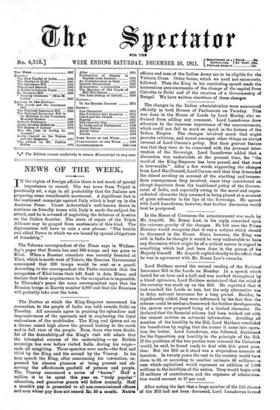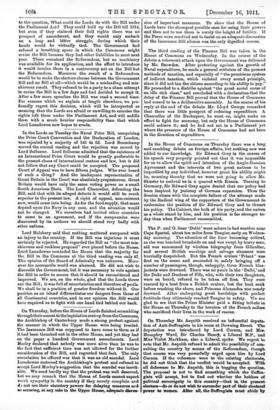After noting the fact that a large number of the
115 clauses of the Bill had not been discussed, Lord Lansdowne turned to the question, What could the Lords do with the Bill under the Parliament Act? They could hold up the Bill till 1914, but even if they claimed their full rights there was no prospect of amendment, and they would only embark on a long and bitter struggle, during which their hands would be virtually tied. The Government had refused a breathing space in which the Commons might revise the Bill because they had other liabilities to meet next year. There remained the Referendum, but no machinery was available for its application, and the effort to introduce it would involve them in a controversy not on the Bill but the Referendum. Moreover the result of a Referendum would be to snake the electors choose between the Government Bill and no Bill at all—which would be a misleading and mis- chievous result. They refused to be a party to a sham attempt to revise the Bill in a few days and had decided to accept it. After a few more speeches the Bill was read a second time. For reasons which we explain at length elsewhere, we pro- foundly regret this decision, which will be interpreted as meaning that the Lords are afraid or unwilling to exercise the rights left them under the Parliament Act, and will saddle them with a much heavier responsibility than that which Lord Lansdowne now hopes to evade.



















































 Previous page
Previous page